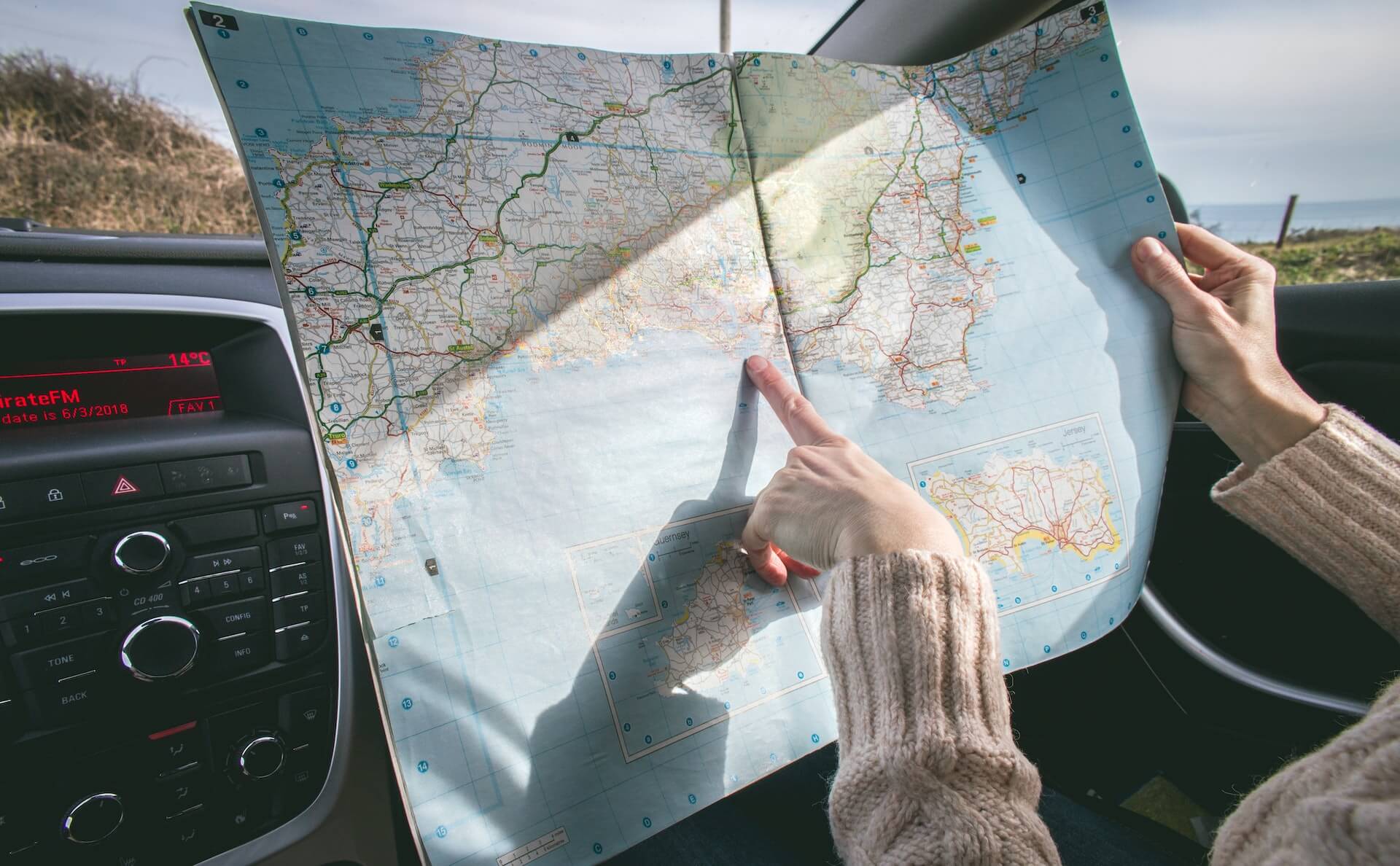As someone who loves to travel, I’ve always believed that learning a new language is an essential part of the experience. Not only does it make the trip more enjoyable, but it also allows you to connect with locals and truly immerse yourself in the culture. However, as someone who struggled with foreign language classes in school, I know how daunting the task can seem.
That’s why I want to share some tips and tricks for language learning specifically geared towards travelers. Whether you’re planning a weekend getaway or a months-long adventure, these strategies will help you set realistic goals, find effective resources, and ultimately feel confident using your newfound language skills abroad. So let’s dive in!
Table of Contents
Key Takeaways
- Setting achievable goals is crucial for successful language learning.
- Regular practice with native speakers and seeking feedback can greatly improve language skills.
- Language learning can be done through various methods such as language learning apps, immersion through travel, attending classes or exchange programs.
- Being patient and persistent is important in language learning as it can be challenging but ultimately rewarding.
Set Realistic Language Learning Goals
You’ve got to set realistic language learning goals if you really want to make progress before your trip. It’s easy to get excited and aim for fluency in a short amount of time, but that may not be feasible or even necessary depending on your travel plans. Instead, think about what you’ll need to know and focus on those areas first.
For example, if you’re traveling to a Spanish-speaking country, it might be more important to learn basic phrases for ordering food or asking for directions than being able to hold a deep conversation about politics. By setting achievable goals that align with your travel needs, you’ll feel less overwhelmed and more motivated to continue learning.
Using language learning apps can also help supplement your studies.
Use Language Learning Apps
Who would have thought that a tiny app on your phone could become your ultimate language guru while traveling? Language learning apps have revolutionized the way we learn and practice languages. They are convenient, user-friendly, and can be accessed anytime, anywhere. As someone who loves to travel but struggles with foreign languages, I have found language learning apps to be incredibly helpful in preparing for my trips.
To help you choose the right language learning app for your needs, here is a comparison between two popular apps: Duolingo and Babbel.
| App | Pros | Cons | Cost |
|---|---|---|---|
| Duolingo | Free (with ads) | Limited conversation practice; not as comprehensive as other options | In-app purchases available |
| Babbel | More conversational practice; more comprehensive lessons; personalized review sessions | Not free (subscription-based); limited support for less commonly studied languages | Subscription cost varies |
Using a language learning app can certainly enhance your travel experience by helping you communicate better with locals and understand cultural nuances. However, it’s important to remember that immersion is key in truly mastering a language.
Immerse Yourself in the Language
If you really want to improve your language skills, there’s no better way than immersing yourself in the language. This means traveling to a destination where the language is spoken and using it regularly in daily life. Another option is attending language classes or participating in language exchange programs to get more formal instruction and practice with others who are also learning. And finally, don’t forget to practice with native speakers as much as possible – they can help you refine your pronunciation, grammar, and vocabulary so that you sound more natural when speaking the language.
Travel to a Destination Where the Language is Spoken
When you travel to a destination where the language is spoken, you’ll feel more connected to the culture and people around you. It’s an excellent opportunity to immerse yourself in the language and practice your skills in real-life situations. Here are three tips for making the most out of your language learning experience while traveling:
- Stay with a local family: Living with locals will expose you to everyday conversations and customs. You’ll learn not just grammar but also slang, idioms, and cultural nuances that textbooks don’t cover.
- Participate in local activities: Joining tours, attending festivals or events, or simply going out for dinner or drinks can help you interact with native speakers. Don’t be shy; start small talk or ask questions about their lives and interests.
- Volunteer: Helping out at a community center, school, or charity organization can be a rewarding way to give something back while practicing your language skills. You’ll meet new people who share similar values and goals.
By following these tips, you’ll not only improve your language proficiency but also gain a deeper appreciation of the local culture. Next up, let’s explore another way to enhance your language learning journey – attending language classes or exchange programs!
Attend Language Classes or Language Exchange Programs
Attending language classes or exchange programs can be a fun way to improve your communication skills, and according to recent studies, students who participate in such programs have shown a 22% increase in fluency within six months. Language classes provide structured learning with professional teachers who can guide you through the intricacies of grammar and vocabulary. They give you the opportunity to practice speaking, listening, reading and writing in an immersive environment.
Language exchange programs offer a more informal approach to language learning. You can meet native speakers who are interested in practicing their own language skills while helping others learn theirs. This kind of program allows for cultural immersion as well as linguistic development. It is an excellent opportunity to make new friends while improving your language abilities. As you progress, attending classes or participating in exchanges should be supplemented by regular practice with native speakers.
Practice with Native Speakers
You can really improve your communication skills by regularly practicing with native speakers. There’s no better way to learn a language than by speaking it with someone who actually uses it every day. It might feel intimidating at first, but don’t be afraid to strike up a conversation with locals when you’re traveling abroad. You’ll find that most people are happy to help you practice and will even be flattered that you’re making an effort to speak their language.
One of the best ways to find native speakers is through language exchange programs or online communities like Meetup or Couchsurfing. These platforms connect language learners with native speakers who are looking for language partners. Alternatively, if you’re staying in a hotel or hostel, try striking up a conversation with the staff – they may be willing to chat with you during their break times or recommend nearby places where you can meet locals. Remember, the more practice you get speaking with native speakers, the more confident and fluent you’ll become in your target language. So don’t be shy – go out there and start practicing!
Practice, Practice, Practice
If you’re serious about improving your language skills, there’s no substitute for consistent practice. Beyond simply practicing with native speakers, it’s important to make time for regular exercises and drills that reinforce grammar and vocabulary. Here are three ways I’ve found helpful in making sure I’m practicing as much as possible:
- Set specific goals: Whether it’s mastering a certain number of new words each week or being able to hold a conversation for 10 minutes without stumbling, having measurable goals can help keep you motivated and focused.
- Incorporate language learning into daily routines: This could mean listening to podcasts on your commute or reading articles in your target language during lunch breaks. Finding small but consistent ways to engage with the language can make a big difference over time.
- Seek out feedback: It can be easy to fall into bad habits when practicing alone, so it’s important to get feedback from others on pronunciation, grammar, and usage. This could mean working with a tutor or finding language exchange partners who are willing to give honest feedback.
By incorporating these strategies into my practice routine, I’ve seen significant progress in my language abilities. However, it’s important to remember that progress takes time and effort – which brings me to the next section about being patient and persistent in our learning journeys.
Be Patient and Persistent
Don’t give up on your language goals, even if progress seems slow at times – remember that Rome wasn’t built in a day and becoming fluent in a new language is no small feat! Learning a new language can be challenging, but it’s important to be patient and persistent. It’s easy to get discouraged when you don’t see immediate progress, but it’s important to keep practicing regularly.
One way I stay motivated is by setting achievable goals for myself. For example, I might aim to learn five new vocabulary words every day or practice verb conjugations for 20 minutes each morning. By breaking down my language learning into manageable tasks, I’m able to make steady progress and feel accomplished along the way. Remembering why you started learning the language in the first place can also help you stay focused and motivated. Whether it’s for travel purposes or personal growth, keeping your end goal in mind will give you the drive to continue working towards fluency.
Frequently Asked Questions
What are some common challenges that people face when learning a new language for travel?
When I’m learning a new language for travel, there are a few common challenges that I always face. One of the biggest is getting over my fear of speaking in front of native speakers. It can be intimidating to try out new phrases and vocabulary when you’re not confident in your abilities. Another challenge is understanding the different accents and dialects that you might encounter while abroad. Even if you’ve studied the language extensively, it can be difficult to understand someone who speaks with a heavy accent or uses regional slang. Finally, finding opportunities to practice the language on a daily basis can also be tough. Unless you’re fully immersed in a foreign country, it’s hard to find consistent opportunities to speak and hear the language outside of formal lessons or classes. Despite these challenges, though, learning a new language for travel is incredibly rewarding and worth the effort!
How long does it typically take to become proficient enough in a language to comfortably travel in a foreign country?
Becoming proficient enough in a language to comfortably travel in a foreign country is like climbing a mountain – it takes time, effort and perseverance. The length of the climb depends on various factors such as the complexity of the language, your prior knowledge, and your learning style. However, as someone who loves to explore new cultures, I can tell you that it’s worth every step of the way. In my experience, it takes around 6 months to a year of consistent practice to reach an intermediate level where you can hold basic conversations and understand simple instructions. But don’t let that discourage you; with dedication and smart study methods like immersion and speaking with native speakers, you’ll be surprised at how quickly you progress. Remember that fluency is not necessarily the goal here; being able to communicate effectively is what matters most when traveling. So lace up those boots and start climbing – your journey awaits!
Are there any specific language learning apps that are particularly effective for travel purposes?
When it comes to language learning apps for travel, there are a few that stand out in my experience. Duolingo is great for building a foundation of vocabulary and grammar, but I found that it lacked more advanced conversational skills. For this, I turned to Babbel which has lessons specifically geared towards situations you might encounter while traveling. Another app that I found helpful was TripLingo, which not only provides language lessons but also cultural information and even a voice translator. However, the most effective way to learn a language for travel is still through immersion and speaking with native speakers whenever possible. So while these apps can certainly be helpful, don’t forget the value of real-life interactions in improving your language skills.
What are some creative ways to immerse oneself in a language if traveling to a foreign country is not possible?
If you’re looking for creative ways to immerse yourself in a language without traveling to a foreign country, there are plenty of options available. One way is to find language exchange partners online and practice speaking with them through video calls or messaging apps. You can also listen to podcasts or watch TV shows and movies in the target language, read books and articles, or even change the settings on your phone and computer to the target language. Joining online communities or forums in the target language can also be helpful for practicing writing skills and getting feedback from native speakers. The key is to consistently expose yourself to the language in as many different ways as possible, even if you can’t physically travel to a foreign country.
How can one maintain their language skills and continue to improve after returning from a trip?
After returning from my trip to Spain, I found that my Spanish language skills were starting to slip away. It was like trying to hold onto a handful of sand – the harder I tried, the more it slipped through my fingers. But then I thought about how a plant needs regular watering and sunlight to thrive. In the same way, language learning requires consistent practice and exposure. So, I started incorporating Spanish into my daily routine by watching TV shows and movies in Spanish, listening to Spanish music during my commute, and even speaking with native speakers online. By making language learning a part of my daily life, I’ve been able to maintain and improve my skills even after returning home from my travels.
Conclusion
So there you have it, my fellow travelers. Language learning may seem daunting at first, but with the right mindset and tools, it can be a fun and rewarding experience. Remember to set realistic goals for yourself, use language learning apps to supplement your studies, immerse yourself in the language as much as possible, and practice consistently.
Of course, patience and persistence are key when it comes to mastering a new language. It won’t happen overnight, but with dedication and effort, you’ll soon find yourself able to communicate with locals in their native tongue. So don’t be afraid to give it a try on your next adventure – who knows what doors will open up for you once you’ve added a new language to your repertoire?








